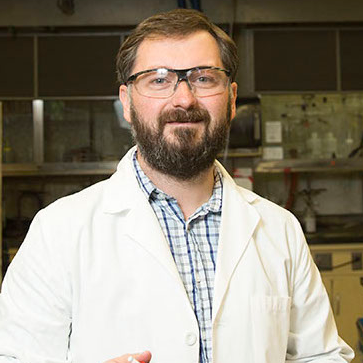C-H Bond Activation and Functionalization
A special issue of Molecules (ISSN 1420-3049). This special issue belongs to the section "Organic Chemistry".
Deadline for manuscript submissions: closed (30 May 2015) | Viewed by 27848
Special Issue Editor
Interests: catalysis; organic synthesis; organometallics; iron and cobalt chemistry; CH activation
Special Issues, Collections and Topics in MDPI journals
Special Issue Information
Dear Colleagues,
The last three decades have witnessed remarkable progress in our understanding of the underlying principles involved in C-H bond activation and functionalization employing transition metal complexes. The applications of C-H activation are almost as varied as the number of researchers actively involved in the field. Not only is the functionalization of CH bonds central to the transformation of simple hydrocarbons into higher value products, but control over product site- and stereoselectivity has allowed applications in complex targets, such as natural products and pharmacologically active agents, to become commonplace. Exciting new advances are being reported with increasing regularity and it is clear the field is continuing to expand. The impact that C-H functionalization can impart to chemical synthesis is potentially revolutionary.
This Special Issue welcomes the submission of papers based on original research that describe the activation of CH bonds, utilizing transition metal elements, in synthetically valuable organic transformations or in the area of mechanistic studies, including stoichiometric processes.
Prof. Dr. Michael Findlater
Guest Editor

Manuscript Submission Information
Manuscripts should be submitted online at www.mdpi.com by registering and logging in to this website. Once you are registered, click here to go to the submission form. Manuscripts can be submitted until the deadline. All submissions that pass pre-check are peer-reviewed. Accepted papers will be published continuously in the journal (as soon as accepted) and will be listed together on the special issue website. Research articles, review articles as well as short communications are invited. For planned papers, a title and short abstract (about 250 words) can be sent to the Editorial Office for assessment.
Submitted manuscripts should not have been published previously, nor be under consideration for publication elsewhere (except conference proceedings papers). All manuscripts are thoroughly refereed through a single-blind peer-review process. A guide for authors and other relevant information for submission of manuscripts is available on the Instructions for Authors page. Molecules is an international peer-reviewed open access semimonthly journal published by MDPI.
Please visit the Instructions for Authors page before submitting a manuscript. The Article Processing Charge (APC) for publication in this open access journal is 2700 CHF (Swiss Francs). Submitted papers should be well formatted and use good English. Authors may use MDPI's English editing service prior to publication or during author revisions.
Keywords
- synthetic applications
- catalysis
- C-H activation
- enantioselective catalytic processes
- small-molecule functionalization
- transition metals
- organometallics
Benefits of Publishing in a Special Issue
- Ease of navigation: Grouping papers by topic helps scholars navigate broad scope journals more efficiently.
- Greater discoverability: Special Issues support the reach and impact of scientific research. Articles in Special Issues are more discoverable and cited more frequently.
- Expansion of research network: Special Issues facilitate connections among authors, fostering scientific collaborations.
- External promotion: Articles in Special Issues are often promoted through the journal's social media, increasing their visibility.
- Reprint: MDPI Books provides the opportunity to republish successful Special Issues in book format, both online and in print.
Further information on MDPI's Special Issue policies can be found here.






